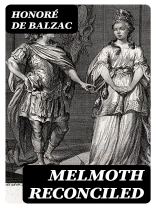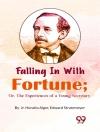In ‘Melmoth Reconciled, ‘ Honoré de Balzac intricately weaves a tale that explores the complexities of human morality, despair, and redemption. Set against the backdrop of 19th-century France, Balzac employs a narrative style that blends realism with philosophical introspection, examining the darker sides of the human experience. The novella centers on the character of Melmoth, who becomes embroiled in a series of existential dilemmas that challenge his understanding of love, sacrifice, and the nature of the soul, embodying the tensions between individual aspiration and societal expectations prevalent in Balzac’s literary landscape. Honoré de Balzac, a prominent figure in literary realism, drew upon his keen observations of society to craft compelling narratives that often dissected the economic and social fabrics of his time. Inspired by the tumultuous changes in post-revolutionary France and the struggles of the burgeoning bourgeoisie, Balzac himself grappled with themes of ambition and moral integrity, which are vividly reflected in the character of Melmoth and his arduous journey toward reconciliation. ‘Melmoth Reconciled’ is a profound exploration of existential themes that resonates deeply with contemporary readers. It offers an insightful commentary on the human condition while challenging the reader to ponder questions of morality and the pursuit of redemption. This novella is a must-read for those seeking to comprehend the complexities of the human spirit through Balzac’s masterful lens.
About the author
Honoré de Balzac (1799–1850) was a French novelist and playwright whose work largely constitutes the sequence of novels and stories collectively called ‘La Comédie Humaine.’ He is known for his keen observation of detail and unfiltered representation of society, which he presented with a realism that was revolutionary in the literature of his day. Balzac’s narrative style binds together disparate social strata, exploring the lives of characters ranging from the destitute to the affluent. ‘Melmoth Reconciled’ is one of the tales from his expansive panorama of 19th-century French life, which explores the themes of wealth, power, and redemption, often hinging on the fantastical and moral questions. A less celebrated work when compared to his monumental successes such as ‘Père Goriot, ‘ ‘Eugénie Grandet, ‘ ‘Lost Illusions, ‘ and ‘Cousin Bette, ‘ ‘Melmoth Reconciled’ nevertheless imparts Balzac’s fascination with the consequences of excess and the pursuit of desire. A prominent member of the realist literary movement, Balzac’s influence on later novelists like Emile Zola, Charles Dickens, and Marcel Proust is immeasurable, marking him as one of the pillars of modern European literature.












